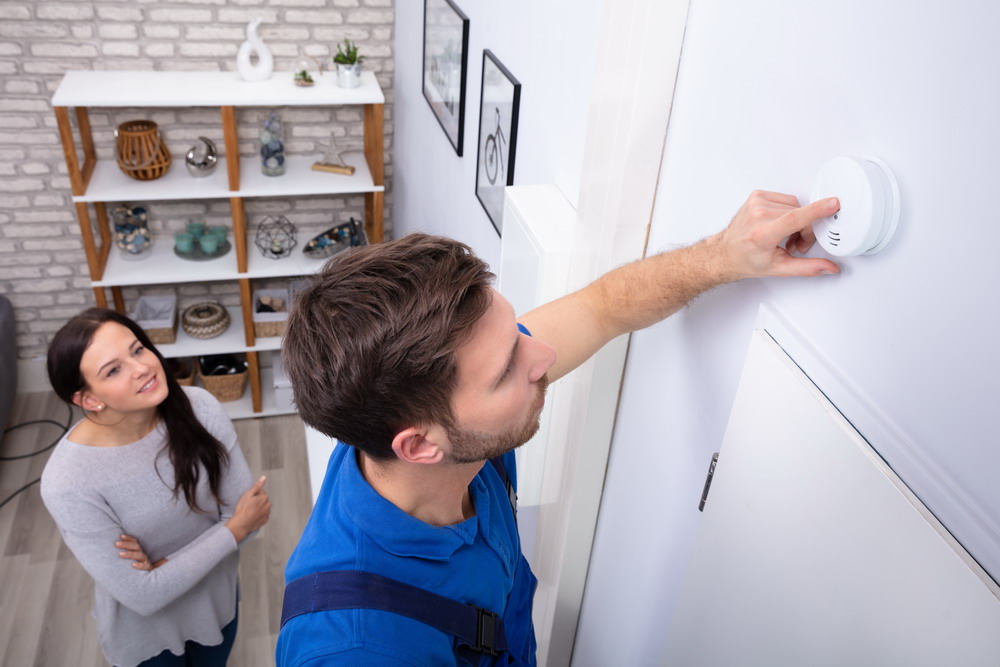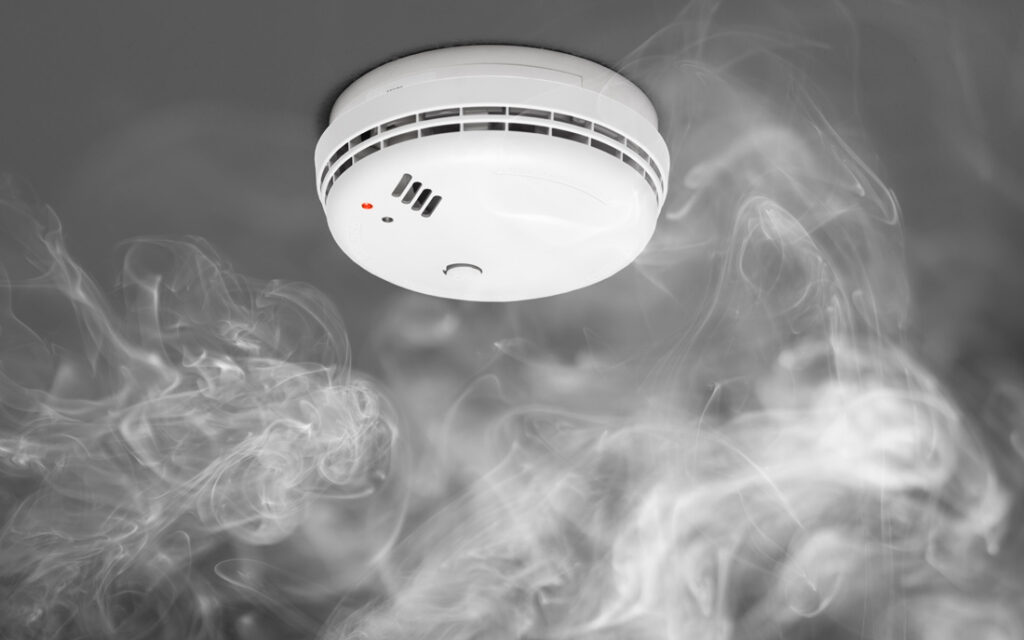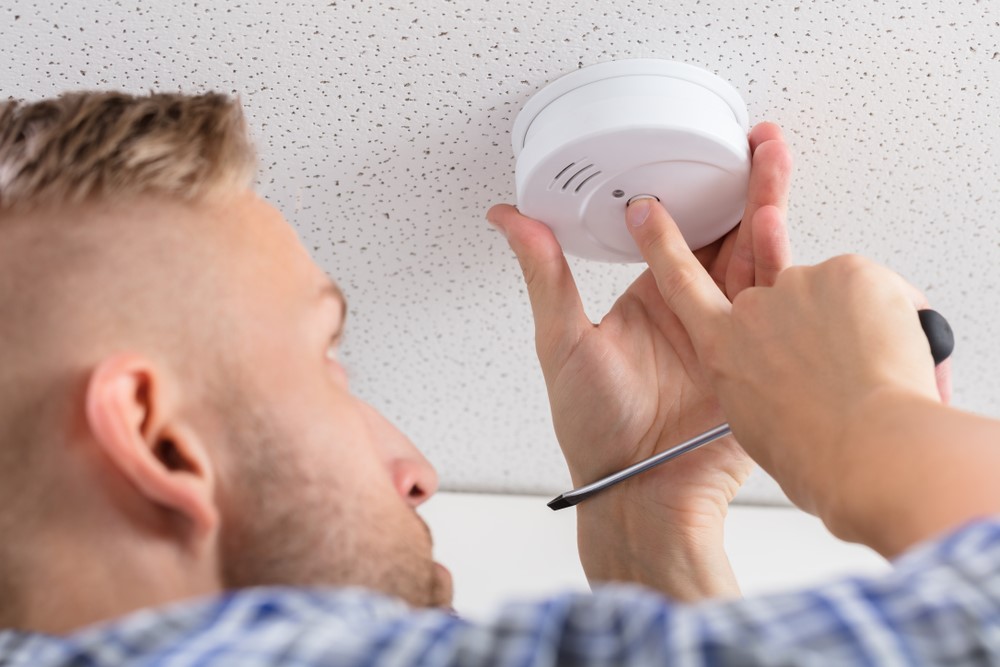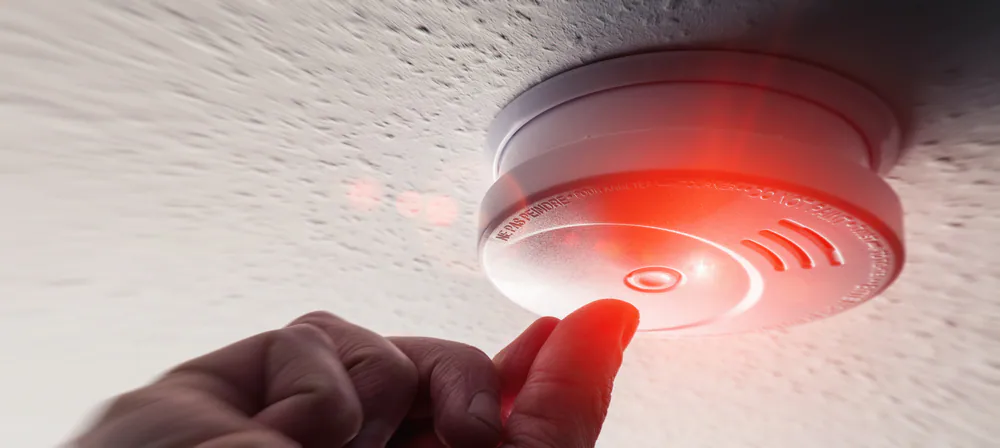
Why Smoke Detectors Register False Alarms
Just about all of us have experienced a smoke detector going off when no fire is present. False alarms are standard fare. False alarms generated by independent smoke detectors are merely inconvenient and noisy. But when a smoke detector is connected to a monitored home security system, false alarms can create big problems.
A false alarm is no big deal when a resident is home. But what if a home is vacant? Personnel at a remote monitoring station may decide they cannot take the chance with a suspicious smoke detector, so they call the fire department. If the fire department comes out and discovers a false alarm, the homeowner could be penalized.
At any rate, smoke detector false alarms occur for reasons that are easy to identify. Thankfully, most false alarm triggers can be corrected fairly easily. It is a matter of figuring out what is triggering the alarm and then making the proper adjustments.
Smoke Detectors Don’t Detect Smoke

The first thing to understand is that, technically speaking, smoke detectors do not actually detect smoke. They detect some kind of interference to their normal operations. This is why false alarms are possible. For further explanation, you might want to check out a great post from Vivint in which they explain how smoke detectors actually work.
To summarize, the two most common types of smoke detectors are photoelectric and ionization units. A photoelectric smoke detector relies on a constant stream of light that flows between transmitter and receiver. Anything interrupting that stream will trigger an alarm.
An ionization smoke detector relies on a combination of chemistry and physics. In simple terms, any particles that enter the smoke detector and attach themselves to the ions inside will interfere with normal operation. This is what triggers the alarm.
Smoke Detector Location
Now that you understand how smoke detectors work, it is time to look at the kinds of things that can trigger repeated false alarms. The first is location. Because the vast majority of residential fires start in the kitchen, experts suggest placing at least one smoke detector either in the kitchen or just outside of it. That is good advice, but it can be problematic.
If you place a smoke detector too close to your stove, you can trigger false alarms even when practicing safe cooking. It doesn’t take much. Burn a piece of toast or overcook a hamburger and that noisy alarm could be blaring in your ears.
Vivint Smart Home says that some of the more advanced smoke detectors now on the market are capable of sensing drastic temperature changes. That being the case, cooking a roast could trigger a false alarm, or even if the kitchen gets a bit too warm could do it.
If you suspect location is causing frequent false alarms, the easiest solution is to move the smoke detector. It should be no closer to the stove than ten feet. However, don’t move it 20 or 30 feet away. Otherwise, you are defeating the purpose of having a smoke detector near the kitchen.
Excessive Dust and Dirt

Neither type of smoke detector can tell the difference between smoke particles and dirt particles. As such, another common cause of false alarms is dusty, dirty air. People who live in dusty environments and keep their windows open are more likely to experience false alarms as a result.
A telltale sign of this problem is dirt and dust inside the unit itself. If you suspect dirt is the problem, take the cover off the smoke detector and shine a flashlight on the internal components. If you see a lot of dust, you may have figured it out. Use a soft paint brush or a can of compressed air to gently clean the internal components. Then put it back together and you should be all set.
Excessively Humid Air
Humid air is air that is saturated with water. Unfortunately, it is also air that has a tendency to carry particles with it. This suggests that some smoke detector false alarms are caused by excessive humidity. You may have observed this in the kitchen.
Have you ever triggered a false alarm simply by boiling a pot of water? In such a case, the smoke detector is too close to the stove. That aside, the humidity from the boiling water captures particles in the air and carries them upward. Those particles are large enough to trigger an alarm.
Tobacco Smoke and Candles

Although it is rare for tobacco and candle smoke to trigger false alarms, it can happen if a unit’s sensitivity is set too high. The difficulty with this sort of scenario is that it’s very difficult to test. Some newer smoke detectors can be tested using commercial testing products, but older ones have to be tested by professionals.
The other problem is that adjusting a smoke detector’s sensitivity is risky business. Even if you know what you are doing, setting the sensitivity too low could defeat the purpose of having a smoke detector. Setting it to high only makes a false alarm problem worse.
Small Insects
Strangely enough, Vivint Smart Home says that some smoke detector false alarms are caused by insects. The smaller the insect, the easier it is for the critter to crawl inside any one of the small holes in the smoke detector’s outer case. In the case of a photoelectric smoke detector, the insect only has to work its way between transmitter and receiver to set off an alarm.
The good news with this particular problem is that it tends to be a one-off scenario. Unless you have serious bug problems in your house, it is not likely that insects will repeatedly set off your smoke detectors.
Smoke detectors are subject to false alarms simply because of the way they work. Fortunately, you don’t have to live with persistent false alarms. If your smoke detectors go off even when there is no apparent cause, check the things mentioned in this post. You should be able to figure it out.
